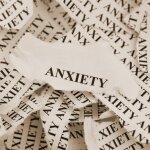
Everybody needs sleep. It is as essential to life as water, food, and shelter. Sleep is a time of healing when the mind resets and cleans up connections in preparation for the new day. As an insomniatic daughter of an insomniac, I probably spend more time thinking about sleep than most other people. I watched my mother struggle for years with lack of sleep. It was detrimental to her mental health, causing depression, anxiety, impaired judgment, and a reduced ability to regulate her emotional control.
Knowing how insomnia affected my mother spurred me to action when I first noticed I was unable to sleep. I consulted my primary care physician who referred me to a sleep psychologist. While my insomnia has yet to be cured, I have reached a point where I no longer allow it to control my life. Sleep is too important to physical and mental health to be ignored.
Insomnia is prevalent in the US with approximate 1 in 4 workers reporting mild to moderate insomnia. Lack of sleep has also been shown to be both a symptom and a trigger of bipolar mood swings. While the list below may not be all-inclusive, it contains my personal top ten tips for getting a good night’s sleep.
Top 10 Best Tips to Improve Sleep Hygiene
- Reduce light: cover windows, alarm clocks, and all other sources of light. Dim overhead and ambient lighting early in the evening to prepare the brain for sleep.
- Reduce distraction: make your bedroom a tech free zone. Do not use the bedroom for using your cell phone, computer, tablet, or watching television. A backlit screen interrupts the process of falling asleep by disrupting the production of melatonin, the chemical produced by the brain to create the urge to sleep.
- Adjust temperature: cool rooms help us sleep. The optimum recommended room temperature for sleep is 65° F. In fact, the American Academy of Sleep Medicine suggests thinking of the bedroom as a cave where it should be cool, quiet, and dark.
- Cut stimulants early: caffeine or alcohol should not be consumed right before bedtime. This means no tea for me after 3:00 pm.
- Eat early: avoid late meals to prevent the discomfort of a distended stomach or GERD from keeping you awake or disturbing your slumber.
- Play soothing sounds: don’t play music with complex lyrics that tempt to you sing along. Singing requires brain activity and since we are trying to fall asleep, we don’t want our brains working on anything but falling asleep. Opt for a noise machine or noise machine app that can play sounds such as white noise, gentle rain, or waves. My personal choice is the Sleep Pillow app that I downloaded from the app store. It allows for sounds to be mixed and customized for my preferences.
- Remove pets: pets wake you up through their movement. You may have the best dog in the world, I know I do, but Fido may be snoring, sniffing, or scratching at night and jostling you out of a productive deep sleep into an unproductive light sleep. Banish pets from the bedrooms and provide for their sleep needs elsewhere.
- Be consistent: a consistent bedtime and wake up time promotes better mental scheduling for sleep. It creates a sleep habit.
- Practice mindful contemplation: prep tomorrow’s to do list early to avoid anxiety at bedtime and to drop the day’s mental baggage. By prepping a to do list early, you avoid last minute, stressful, mental list making as you are trying to fall asleep.
- Consider participating in cognitive therapy: find the source of your overall sleep disorder and treat it. Insomnia can lead to anxiety, depression, mood disorders, and even trigger bipolar reactions. If you need help sleeping, reach out for help and be willing to accept help. Sleep is too important to your health to be ignored.
























































